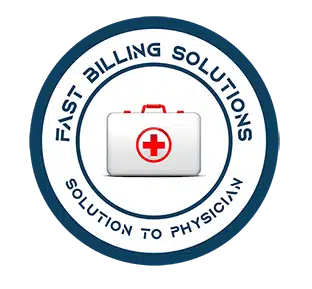Credentialing, in the healthcare field, is a process that healthcare organizations conduct to review and authorize practitioners and physicians for providing care. It is a necessary part of healthcare systems in the USA. The credentialing process checks whether or not physicians are qualified to work. Credentialing holds critical importance for the RCM process. Remember that insurance companies do not pay claims if physicians are not credentialed. Therefore, credentialing services become significant for every provider.
What Do Credentialing Services Do?
Credentialing services organize and manage physicians’ credentialing applications. It is essential to verify that the process of credentialing proceeds efficiently. Credentialing service providers have comprehensive credentialing process knowledge. They don’t have to do other tasks. Therefore, they deal with any issues or delays better than the staff or physicians.
By outsourcing credentialing, physicians and practitioners will save time and staff resources. Therefore, these services prove less expensive and allow physicians to start billing for rendered services ahead of time.
Practitioners will receive the following service categories from the credentialing services:
- Initial credentialing
- Re-credentialing
- Management of EXPIRABLES
Credentialing needs of practice or physician depends on their practice and career. It is an essential part of the start-up process of practices. If you are planning to start, you will also have to submit preliminary credentialing applications.
Credentialing Types
There are two types of medical credentialing; insurance credentialing and hospital credentialing. They are very similar, but with some significant differences. Let’s take a closer look at the two types for a better understanding.
1. Insurance Credentialing
Why insurance credentialing is essential and what is its purpose? It helps providers to recognize patients with particular insurance. Then, it becomes easier for them to bill for their services. Without insurance credentialing, physicians will not get payments for their services.
From the perspective of credentialing, here are the different insurance provider categories:
- Non-CAQH payers
- CAQH payers
- Government payers
Credentialing with all these payers’ types entails a little different process.
2. Hospital Credentialing
Physicians can recognize patients within a hospital through credentialing via the hospital system. A physician who is doing a job at the hospital can address medical credentialing through the employer, while staff physicians have support from the institute in credentialing. But, a physician looking for affiliate status needs to consider the process of credentialing independently with the least hospital support.
Usually, independent physicians must list at least one physician to ensure backup services for patients. Naturally, alternative physicians also need to have credentials with that hospital. In the hospital credentialing, personal relationships, and networking are significant factors because of the backup coverage need. Established physicians play a massive role in accommodating new physicians.
In-House and Outsourced Credentialing
Outsourcing credentialing services is an ideal approach for large practices. Larger practices should always opt for hiring a full-time credentialing staff. Larger groups and hospital systems have credentialing departments with full-time, multiple staff members. It is helpful because in-house staff completely focuses on credentialing. On the other hand, outsourced credentialing is an ideal approach for smaller practices. These services are inexpensive and help practices reduce their operational costs. However, it is essential to ensure that they are hiring an experienced and credible credentialing service.
You May Also Read: 5 Deciding Factors When Choosing Medical Billing Services
